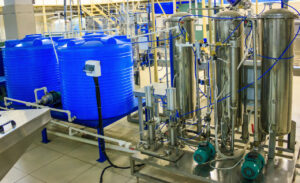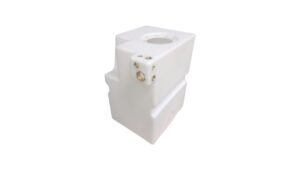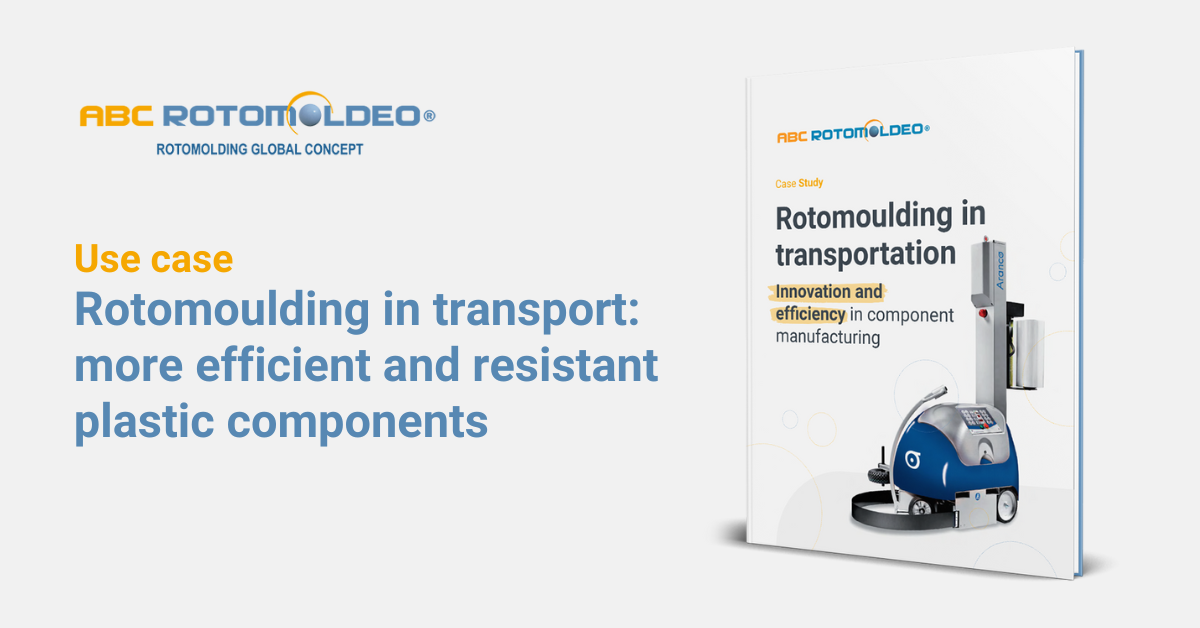
Water storage is a fundamental need in domestic, agricultural, and industrial settings. Whether to ensure supply in areas with limited access, to collect rainwater, or for use in production processes, water tanks are a key tool for guaranteeing resource availability when needed.
However, not all tanks offer the same performance. There are important differences in materials, manufacturing methods, and behavior under intensive use or environmental conditions. These variations directly affect the durability, safety, and hygiene of the storage system.
In recent years, rotomolded tanks have gained special relevance thanks to their technical advantages and adaptability. But what makes them different? Why are so many industries choosing them today? This article answers all these questions.
What is rotomolding and how is it applied to water tanks?
Rotomolding, also known as rotational molding, is a manufacturing technique used to produce hollow plastic parts. It involves placing powdered plastic resin inside a mold that is heated and rotated on two axes. As a result, the material melts and evenly coats the inner walls of the mold, creating a seamless, solid piece.
In the case of rotomolded tanks, this technique offers several key advantages:
- Monolithic structure: Since the tank is made in a single piece with no joints or welds, the risk of leaks or seepage is virtually eliminated. This ensures safer storage and reduces maintenance needs over time.
- Uniform thickness: The rotomolding process allows the tank walls to maintain a consistent thickness, ensuring even resistance across the entire surface. This uniformity improves durability and structural performance under internal pressure or external impacts.
Design flexibility: Tanks can be produced in a wide variety of sizes, shapes, and colors to suit specific installation needs, whether above ground, underground, or in restricted spaces.
It’s also possible to integrate features such as handles, inlet and outlet connections, or other custom functional elements, reducing the need for additional components and improving efficiency in specialized applications such as agricultural irrigation or dust control on construction sites.
Compared with manufacturing methods like blow molding or injection molding, rotomolded tanks stand out for their durability, lower mold costs, and the ability to produce large, high-quality tanks.
Characteristics of rotomolded water tanks
Rotomolded tanks possess technical properties that make them ideal for various conditions and environments.

1. Strength and durability
The strength and durability of rotomolded products are among the main benefits of this production technique. Thanks to their one-piece design and the use of high-quality materials like polyethylene, these tanks exhibit excellent structural resistance. They can withstand impacts, thermal variations, and extreme environmental conditions, indoors or outdoors.
You may also be interested in the article ‘Plastic rotomoulding. What is it and what advantages does it offer?’
2. Seamless Design
Another major advantage of rotomolded water tanks is their seamless structure. Being a single, integral piece eliminates weak points where leaks or structural failures could occur over time, ensuring long-term safety.
3. UV and environmental protection
Tanks can include UV protection additives, which are essential for outdoor installations. These additives prevent premature material degradation and inhibit algae growth inside the tank.
They are also resistant to chemicals and corrosion, making them a robust option for a wide range of environments.
Materials used and their impact on water quality
One of the most important aspects of rotomolded tank manufacturing is selecting the right plastic material. Most commonly, LLDPE (linear low-density polyethylene) is used. This material stands out for its:
- Chemical inertness: It does not react with water or release harmful compounds, making it ideal for storing drinking water.
- Absence of BPA and heavy metals: Being free from these substances ensures the water remains unchanged in taste, smell, and color.
- High resistance to impacts and external agents: It can withstand shocks, vibrations, and harsh weather conditions without compromising its structure.
- Recyclability: LLDPE is a recyclable material, adding value in terms of sustainability and circular economy.
In some cases, other polyethylene variants like cross-linked polyethylene (PEX) are used, known for their resistance to high temperatures (up to 110 °C), impact, tensile stress, scratching, and cracking. PEX also resists corrosion, making it a durable and reliable option for diverse applications.
Thanks to these properties, rotomolded plastic water tanks offer a safe and dependable solution for water storage, even under demanding conditions, without compromising either the water quality or the tank’s integrity.
Common applications
Rotomolded tanks are extremely versatile and can be adapted to numerous uses in both domestic and industrial sectors.
Domestic use
They are used to collect rainwater or store drinking water in homes. Thanks to their compact and aesthetic design, they can easily integrate into gardens, terraces, or shared spaces.
Industrial use
In factories and production facilities, water storage tanks are essential to ensure resource availability for processes such as cooling, cleaning, or manufacturing. Their chemical resistance provides superior durability compared to metal tanks, significantly extending product lifespan and reducing costs.
Transport use
Water tanks used in transportation, for example, in trains, play a crucial role in supplying potable water and supporting onboard restroom systems.
Agricultural use
Rotomolded components are widely used in agriculture due to their watertightness and UV resistance, highly valued features in the industry. Water tanks are a prime example: essential for drip irrigation, livestock watering, and rainwater storage.
You may also be interested in the article ‘Rotomoulded tanks: diverse applications for any industry’.
For all these reasons, there is no doubt that rotomolded tanks are an efficient, strong, and durable solution for water storage across multiple applications. Their manufacturing process ensures a seamless structure, safe materials, and a long service life.
If you’re looking for a reliable and adaptable alternative for your project, rotomolded plastic water tanks represent a smart, sustainable investment. Explore our full range of plastic tanks and find the solution that best fits your needs.

